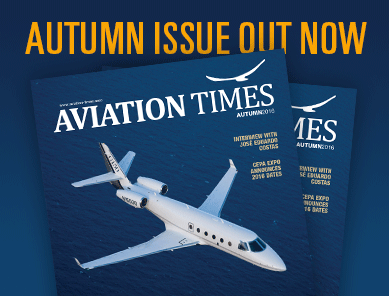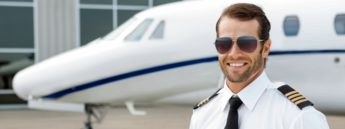Baltic Aviation Academy Knows What It Takes to Become a Pilot
 The recent devastating events in the aviation industry have left the entire world shaken. Even though the damage has been already done, many questions are yet to be answered. Some choose to whisper, others opt for asking out loud: Can’t we monitor the mental state of our pilots to avoid such tragedies in the future? Even though the question seems quite simple and straightforward, the answer rests upon multiple highly detailed and complex explanations. But let’s start from the beginning.
The recent devastating events in the aviation industry have left the entire world shaken. Even though the damage has been already done, many questions are yet to be answered. Some choose to whisper, others opt for asking out loud: Can’t we monitor the mental state of our pilots to avoid such tragedies in the future? Even though the question seems quite simple and straightforward, the answer rests upon multiple highly detailed and complex explanations. But let’s start from the beginning.
I will be a pilot! Won’t I?
When we embark upon a conversation about the profession of a pilot, the first thing we do is ask whether one truly wishes to become a pilot. It is a fundamental question leading to the long and difficult process of becoming an aviation professional. This process usually starts with a detailed assessment aimed at evaluating whether the person is suitable for such profession. Makes sense, right? Okay, let’s analyse this stage in more detail.
The first major step is to pass the medical examination. All candidates must meet certain health criteria which are specifically set for potential professional pilots. Amongst other stringent medical requirements, a future pilot must provide medical reports from such specialists as a narcologist and a psychiatrist.
Let’s stop here. The requirement stating that all “future pilots must provide a medical report from a psychiatrist” does not mean that the industry has managed to cover all the possible bases. In fact (and reality), a medical report does not cover any regulated psychological examinations. In other words, it is possible, that such a report will only show whether a candidate has already got any records about known psychological issues, as opposed to being designed to reveal whether the candidate is prone to such issues.
The second important step is entering your training. And here we have another stop. According to the EASA regulations, training providers must evaluate the candidates’ competence with regard to mathematics, physics and English language. However, there are no indications when it comes to the evaluation of the candidates’ psychological well-being.
So what? No control over who can become a pilot?
It is very important to understand that there are more possible influencers in this “pilot suitability chain”.
Some of them are as follows.
One of the many decision makers in this process is the training provider. Depending on the training provider, the assessment of your candidacy can be carried out based on many diverse criteria. “Even though there are no regulations to conduct any additional candidate assessment, some things can, in fact, be done. With the help of certain tests we analyze candidates’ skills and character features to measure their suitability for the profession. Besides the mathematics, physics and English language competence we take into consideration multiple other factors. For instance, we consider the candidate’s motivation to become a pilot, how that person manages to deal with stressful situations, also the teamwork abilities which are vital for adequate performance in such a stressful environment as the cockpit. Naturally, the ability to demonstrate successful performance is a great indicator of the pilot’s overall mental state,” comments Indre Sveistryte, Director Aviation Training Ab Initio at Baltic Aviation Academy.
So who makes the final decision?
When selecting candidates during the admission process, we consider that each applicant must pass the so called ‘suitability chain’. There are at least three decision makers. The first one on the list is the candidate himself who has a certain motivation to seek this dreamy, yet responsible profession. Then there are the doctors who either “bless” your decision, or prevent you from pursuing your dream right there and then. Finally, when you already one leg in training, there is still the training provider to convince that the pilot profession is the right choice for your career in aviation.
So now it is clear who has a say, but we are still to determine who should make the final decision about whether a person is suitable for the profession? Moreover, it should be made clear how the decision is made… Every party separately? Maybe all of the parties should make a joint decision? Is it possible to do that at all, since there’s a lack of detailed and strict regulations issued by the authorities?
Source: BAA
Publishing or copying the content of AVIATION Times without a written electronic permission is strictly forbidden. If you have any information, tips, videos, photos or your press releases for us contact us at news@aviation-times.aero.
AVIATION TIMES © Copyright 2012 - 2026







